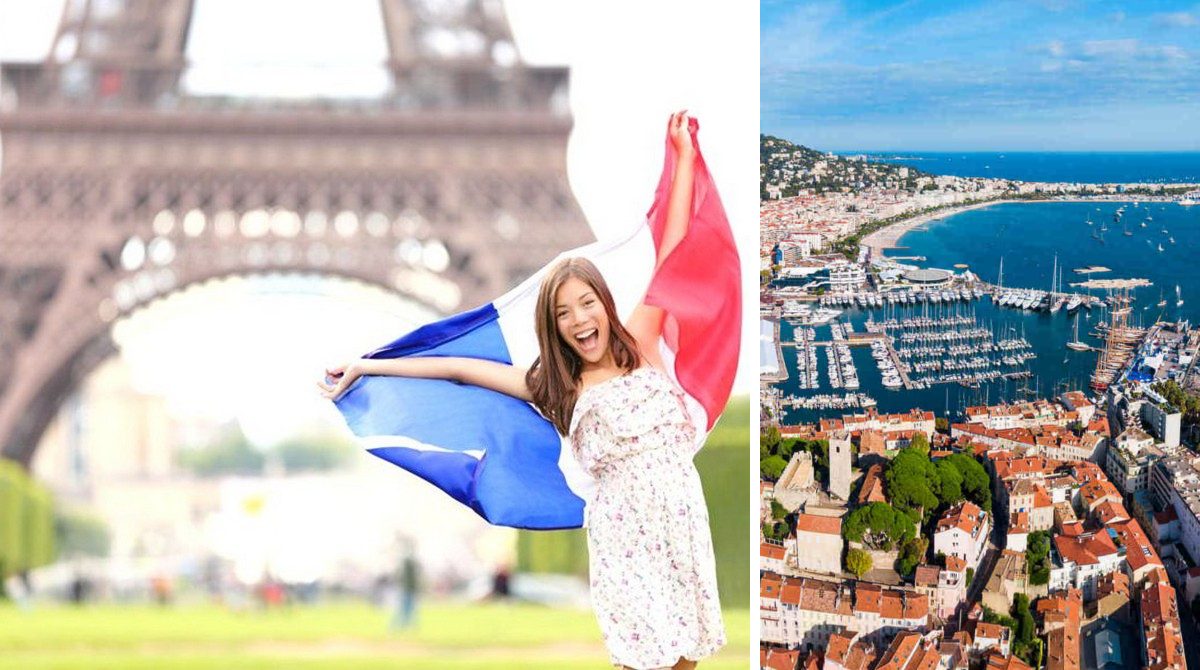Summer is in full swing in Paris, and the square in front of the Louvre is full of vendors selling Eiffel Tower souvenirs and water. Tens of thousands of American travelers flooded the French capital this summer as the US provided import substitution for wealthy Russian tourists. Mass tours of Americans to France are explained by favorable exchange rates for them.
According to the French press, the saturated flow of tourists from the USA will bring a general sense of relief to the tourism sector, which has been affected by the coronavirus and “beaten” by sanctions from the loss of rich Russians, who regularly flocked to France until February 24. and according to city government forecasts, North America will make the largest contribution to the tourist market in Paris this summer.
The conclusion was drawn based on booking statistics, the figures of which have almost returned to pre-2019 levels. “The Americans are doing their job. This means that they are coming back en masse and with a lot of money to spend,” the media quoted Paris’ deputy mayor for tourism, Frédéric Ocquard, as saying.
However, the Americans distinguished themselves outside of Paris. Officials and the tourist sector note their presence in various popular cities and resort regions and enthusiastically chant: “The Americans are back!”. Thus, one of the headlines on the front page of Nice Matin, a well-known newspaper on the French Riviera, on July 6 said: “They spend without account after two years of restrictions.”
According to a report conducted by the research company GfK for Visa, on average American tourists who come in groups spend $402 (about 12 thousand hryvnias) per day in France each, resulting in a budget for a 10-day visit of a staggering $7,687 (227 thousand hryvnias). In other words, Americans spend far more than any other foreign tourist.
There are no Russian tourists in the south of France
The Americans are particularly important this year to the south of France along the Mediterranean Sea, whose beautiful coastlines have long been a paradise for many wealthy Russian vacationers. Based on the report published by the Regional Chamber of Tourism concerning the data of the Chamber of Commerce and Industry, the country will lose 50.4 million dollars in 2022 due to the lack of Russian tourists. Rich Russians visited popular French cities, such as Saint-Jean-Cap-Ferrat, before the coronavirus pandemic and sanctions.
But these negative forecasts did not come true, the Chamber of Commerce said, admitting that “the summer season is looking pretty good.”
The unexpected turn of events in tourism was appreciated by both local officials and owners of luxury hotels on the French Riviera.
“Russians have indeed decreased, but they have been replaced by all other tourists,” said Jean-Francois Dieterich, mayor of Saint-Jean-Cap-Ferrat. According to the French Ministry of Finance, in a small town with a population of fewer than 1,500 people, 6 out of 61 properties belonging to wealthy Russians have been frozen by the French government.
“It was quite surprising because we felt that the lack of Russian clientele would affect the hotel, but in the end it didn’t,” the newspaper quoted the manager of the five-star Royal-Riviera hotel in Saint-Jean-Cap-Ferrat as saying.
“Tourist Revenge”
Before the pandemic, Russian tourists made up 20% to 25% of the hotel’s clientele during the summer months, but this year they all left because of sanctions against Russia, Kesq reported. An employee of the luxury hotel recalled the chaos that erupted after February 24 – Russian guests who stayed at the hotel had to pay in cash because their bank cards became useless due to the suspension of the SWIFT international payment system with Russian financial institutions.
Americans are now flocking to the Mercadal Hotel. Usually, tourists from the United States made up about the same share of customers as Russians before the pandemic, but this year, in June alone, the share of American guests jumped to 42%.
The war in Ukraine has also affected exchange rates, sending the euro to its lowest level against the dollar since 2002, meaning travel to Europe has become much cheaper for Americans. “What’s happening this year was tourist revenge,” said the manager of the famous hotel, referring to the phenomenon where travelers spend money on big trips to compensate for the forced isolation caused by the coronavirus pandemic in the past two years. “This is a good surprise, and it largely compensates for the lack of Russian clientele,” he added.

